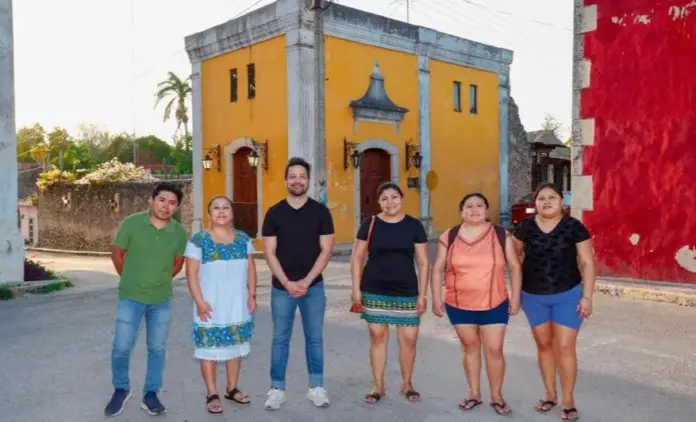International consultant Carlos Dehesa set his sights on Quintana Roo to host the first prototype of a regenerative community in Mexico after touring Mayan communities in the central part of the state where, without institutional discourse or green labels, a sustainability rooted in the land and the community is already being experienced.
Over several days, Dehesa visited five communities: Tihosuco, X-Pichil, Sabán, Huay Max, and X-Cabil, accompanied by the Quintana Roo Indigenous Tourism Network “Ik Lu’um,” which in Mayan means “our territory.”
There, he lived with women embroiderers, melipona honey beekeepers, backyard farmers, and traditional cooks, in a territory where “regenerative” isn’t theorized: it’s practiced.
“These communities are already doing what many places consider a future goal: they live in harmony with their environment, care for the land, respect natural cycles, and organize collectively,” Dehesa stated. “Here, things are built on mutual respect and a sense of belonging.”
What he saw wasn’t an imported model or a social experiment: it was wattle-and-daub houses, solar cookers, astronomical tourism, local wood carving, and a way of life that doesn’t seek development, but rather to maintain dignity.
Regenerative community will promote sustainability in Mexico
The tour is part of the process to select the location for the country’s first prototype regenerative community, which will be designed with a short-, medium-, and long-term focus and a vision that transcends political cycles.
The decision, still pending, involves an interdisciplinary group that will evaluate technical, cultural, community, and territorial criteria.
The regenerative community proposal proposes a development model based on bioclimatic architecture, clean energy, agroecology, and strengthening the social fabric.
A model that, according to Dehesa, could serve as inspiration for other regions of Mexico where environmental devastation and the abandonment of local knowledge prevail today.

Source: milenio




